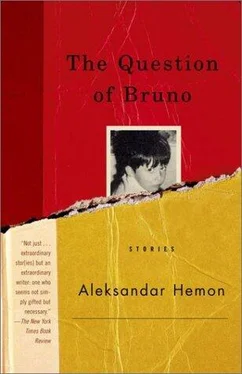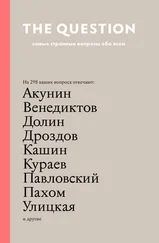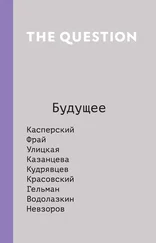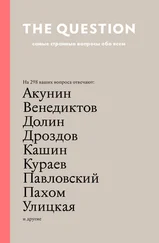Veba said he worked with a guy who used to be a sharpshooter and was kind of famous for killing two girls on the other side with a single bullet. He was on the top of Hotel Bristol and they were playing somewhere across the river.
There was the intersection where I had the only car accident of my life, rear-ending a tractor. The streetlights were out, one of them was dangling like a shot-off limb, right above a scorched ambulance car.
My mother and I finally talked my father into taking a walk with us. Neighbors greeted us, and we greeted them, and sometimes we would stop and talk. And how is America? they’d ask. Fine, I’d say, hard work. We walked by the Miljacka, under the blooming crowns of chestnut trees. The river had been the front line, so the trees had not been cut for firewood. We walked to the apartment where I used to live. Some refugees from eastern Bosnia lived there. Nice people, my parents said, but very scared. They would let you in, probably, to look around, but they would be scared.
We stood across the street, looking at the UNHCR nylon. A shadow passed across the nylon screen, then another one. I could imagine them preparing a meager dinner, going over to the cupboard, taking out plates, setting them up on the table. Then taking out the utensils, dropping a fork on the floor, perhaps, then spitting on it and wiping it with a cuff. I could see them sweeping and washing the floors; washing the tub; scraping the filthy film in the sink; scrubbing the toilet bowl; vacuuming the carpets. I suddenly had a feeling that I had stepped out of my life and that I was watching myself, that the shadow behind the nylon was me.
I imagined standing in a water line, surrounded by plastic vessels, and then a shell comes soundlessly out of nowhere and hits the asphalt and the person in front of me is mowed down instantly. I can sense that something is wrong with my body and I look down and I am kneeling, my thighs are ripped apart, spouting blood. I topple over and bang my head against the pavement, but there is no pain, I am surprised. And right in the line of my rapidly fainting gaze there is the rose, still warm, filled up with the blood oozing out of my head. But I could never imagine the moment of death, I could never imagine vanishing, so my imagination stays fixed on the rose.
Mozartkugeln
“There is no way you can get in,” the Austrian officer said, tightening his pale lips to express the disapproval of Pronek’s attempt to enter Austria without a visa. The width of his mustache exactly matched the width of his mouth at that moment. Pronek stared into the officer’s greenish eyes, clutching his Bosnian passport in his extended hand. “But all I want is to take look at Vienna,” Pronek said. “I’ll be right back. I won’t stay. I am alien resident of United States.”
At that moment, Pronek understood that he was an oxymoron.
An Asian man, with his shoeless feet propped up on his suitcase, leaning back on the seat, watched the interlocution with drab disinterest. Pronek looked at him as if he were to be a crown witness of supreme injustice, but the man just averted his eyes and looked at a wall-wide ad picturing the Alps, promising clean water, clear air, healthy heights, far from stinky alien crowds.
Pronek went up the escalator, with his handbag full of clean knitted socks and bourek, devised by his mother, and stopped to stare at the door, revolving counterclockwise, contemplating an attempt to get out, until he saw steel bars preventing that possibility.
“Passenger Katzelmacher, please report to the Information desk,” a willowy electronic voice from above said.
He went uphill, tired people stretching uncomfortably on blue seats along the wall. He saw a Bosnian family with recognizably flat, square heads. They were lumped together, probably convinced that separating for a moment would put them in danger of never seeing one another again. A mound of a man, his navel peering out, with a flat briefcase on his rotund belly, ascending and descending. An African child in a Liverpool jersey, bundled in his mother’s lap, looking out, his eyelids slowly sliding down, closing. A man reading Russian newspapers, his brown-socked feet parallel on top of his shoes. There was a tie store, with millions of pendant ties, with only slight variations in pattern and color, dementedly echoing one another. A group of Americans led by a woman clad in an American-flag dress, her wide butt star-spangled, strolled by with their hands full of duty-free shopping bags, laughing vociferously. He saw one of the Americans, a tall, blond man, dropping his Redskins hat, not noticing and walking away, and Pronek felt a twang of glee. He imagined spending his life here in the transit zone of the Vienna airport, pickpocketing for a living, robbing Americans blind every time a planeload of American optimism and resolve was delivered. He wandered into a store populated with Mozarts staring at him askance from the box-tops. All of them had their lips tightened into a narrow line and seemed to be worried about something.
Pronek bought a box of Mozartkugeln, though he could think of no one to give it to.
“Passenger Katzelmacher, please approach the Information desk.”
Pronek approached a camera store. There was a little screen in the window and he recognized himself on the screen. He looked up and saw a tiny camera above the entrance, like a motionless, black hummingbird. He waved at himself, and he waved back at himself. Two veiled women walked into the store and began examining a Polaroid camera. He decided not to enter the store and went to the Johann Strauss Café. He crossed his legs and watched the departure billboard, and all of a sudden a tsunami of changes went through it, and Moscow was carried from the top, on the crest of a rapid wave, to the middle, where it settled down right above Bangkok. A waiter, balancing a weighty tray on three fingers, flitted by, and then began unloading plates, putting them in front of a man in a black shirt unbuttoned to his navel, and silver cross dangling between his nipples. The waiter finally put down a humongous mug of beer, and the man guzzled down half of it, before the waiter stepped away. Then he wiped the froth from his upper lip and looked straight into Pronek’s eyes.
Pronek asked for a glass of mineral water, cold.
There were people sitting in a circle, with their backs to a marble pile from which water patiently oozed. A man with a black wide-brimmed hat frowned, smoking and dropping the ashes into the palm of his left hand. A man in a tweed jacket with suede elbow patches and a gray, academic beard, flipped through a Penthouse with a woman named Grace breasting on the cover. A stream of people poured through one of the rectangular metal detectors, as if they had materialized all of a sudden, beamed down from a distant planet. They all spoke a language Pronek could not locate, occasionally clapping hands in front of each other’s faces. A woman pushed a cart with a little girl on its prow, like an admiral.
“Passenger Pronek, please report to gate number one.”
Pronek left the carefully counted Austrian coins at the table, drank the mineral water to the bottom and sauntered over to the duty-free shop. Johnny Walker, Winston, Jack Daniels, Milde Sorte, Jim Beam, Captain Morgan, Rothmans, Smirnoff, Davidoff, Coco Chanel, Jean Paul Gaultier, Absolut. Pronek walked out and looked at the departure billboard: Moscow was at the bottom, about to be gone, and he had three more hours before the flight. He did not want to fly to Chicago. He imagined walking from Vienna to the Atlantic Ocean, and then hopping on a slow trans-Atlantic steamer. It would take a month to get across the ocean, and he would be on the sea, land and borders nowhere to be found. Then he would see the Statue of Liberty and walk slowly to Chicago, stopping wherever he wished, talking to people, telling them stories about far-off lands, where people ate honey and pickles, where no one put ice in the water, where pigeons nested in pantries.
Читать дальше












